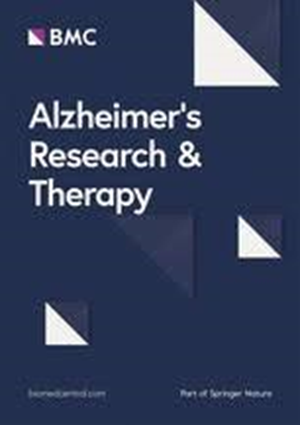蛋白质摄入量与外显记忆:载脂蛋白 E ε4 状态的调节作用
IF 7.9
1区 医学
Q1 CLINICAL NEUROLOGY
引用次数: 0
摘要
本研究调查了蛋白质摄入量与阿尔茨海默病(AD)相关认知能力下降之间的相关性,尤其是在没有痴呆症的老年人中的外显记忆方面。此外,我们还评估了脂蛋白ε4(APOE4)对这种关联的调节作用,并分析了其对记忆以外的其他认知功能的影响。这项研究有 196 名参与者参加,他们接受了蛋白质摄入量、认知能力、APOE4 基因分型和营养生物标志物的评估。根据乳制品、豆类、鸡蛋、肉类和鱼类的摄入量,蛋白质摄入量被分为低、中和高。蛋白质摄入量高与记忆力和整体认知能力的提高有明显关系。此外,还发现高蛋白摄入量与 APOE4 之间存在明显的交互作用,这表明 APOE4 可调节高蛋白摄入量与外显记忆之间的关系。敏感性分析在食物摄入量稳定的参与者中证实了这些结果。我们的研究结果表明,在没有痴呆症的老年人中,高蛋白摄入量与更好的外显记忆有关。此外,研究结果还突显了 APOE4 状态在调节蛋白质摄入量与外显记忆之间关系中的重要作用。这些结果表明,以蛋白质摄入量为重点的膳食干预措施可能有益于认知健康,尤其是对有注意力缺失症遗传倾向的人。本文章由计算机程序翻译,如有差异,请以英文原文为准。
Protein intake and episodic memory: the moderating role of the apolipoprotein E ε4 status
This study investigated the correlation between protein intake and Alzheimer’s disease (AD)-related cognitive decline, particularly in episodic memory, among older adults without dementia. Furthermore, we assessed the moderating effect of apolipoprotein ε4 (APOE4) on this association and analyzed its influence on other cognitive functions beyond memory. The study involved 196 participants who underwent assessments for protein intake, cognitive performance, APOE4 genotyping, and nutritional biomarkers. Protein intake was categorized into low, medium, and high based on the consumption of dairy, legumes, eggs, meat, and fish. High protein intake was significantly associated with better episodic memory and overall cognition. Moreover, a significant interaction was found between high protein intake and APOE4, indicating that APOE4 moderates the association between high protein intake level and episodic memory. Sensitivity analysis confirmed these results among participants with stable food intake. Our study results demonstrated that high protein intake is associated with better episodic memory among older adults without dementia. Furthermore, the findings highlight the significant role of APOE4 status in moderating the relationship between protein consumption and episodic memory. These results suggest that dietary interventions focusing on protein intake could be beneficial for cognitive health, particularly in individuals with a genetic predisposition to AD.
求助全文
通过发布文献求助,成功后即可免费获取论文全文。
去求助
来源期刊

Alzheimer's Research & Therapy
医学-神经病学
CiteScore
13.10
自引率
3.30%
发文量
172
审稿时长
>12 weeks
期刊介绍:
Alzheimer's Research & Therapy is an international peer-reviewed journal that focuses on translational research into Alzheimer's disease and other neurodegenerative diseases. It publishes open-access basic research, clinical trials, drug discovery and development studies, and epidemiologic studies. The journal also includes reviews, viewpoints, commentaries, debates, and reports. All articles published in Alzheimer's Research & Therapy are included in several reputable databases such as CAS, Current contents, DOAJ, Embase, Journal Citation Reports/Science Edition, MEDLINE, PubMed, PubMed Central, Science Citation Index Expanded (Web of Science) and Scopus.
 求助内容:
求助内容: 应助结果提醒方式:
应助结果提醒方式:


